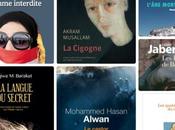Premessa: Nata in Canada, Janice Weizman ha vissuto gli ultimi trent’anni della sua vita in Israele. È l’autrice di The Wayward Moon, un romanzo storico ambientato nel Medio Oriente del IX secolo e pubblicato dall’editore YotZeret Publishing nel 2012. Il romanzo ha vinto sia la medaglia d’oro degli Indipendent Publisher Awards, sia quella dei Midwest Book Awards. Suoi articoli sono apparsi in numerose riviste letterarie tra cui Lilith, Jewish Fiction e il The Jerusalem Report. È fondatrice e direttore editoriale di The Ilanot Review, una rivista letteraria online legata all’Università Bar-Ilan. Dopo l’intervista che le feci in occasione dell’assegnazione del Premio Nobel per la Letteratura alla scrittrice canadese Alice Munro, siamo rimaste in contatto e ci sentiamo di tanto in tanto. Il pezzo che segue è la traduzione integrale dell’ultimo scambio via e-mail avuto con Janice a seguito del drammatico attentato di ieri alla sinagoga di Gerusalemme che ha causato la morte di 4 rabbini: “Aryeh Kopinsky, di 43 anni, Avraham Shmuel Goldberg, di 68 anni, Calman Levine, di 55 anni , e Moshe Twersky, di 59 anni”.
Rina Brundu, in Dublino, 19 novembre 2014
——————
Dublino, 18 novembre 2014
Cara Janice,
come sai alcune settimane fa volevo intervistarti a proposito della situazione in Israele dopo l’ascesa dell’ISIS, e in considerazione degli altri tristi fatti che stanno trasformando il Medio-Oriente e la costa nord-africana in luoghi ancor più difficili da vivere. Poi ho rimandato questo impegno e non so esattamente perché l’ho fatto, forse perché a questo punto siamo tutti internamente convinti the nulla mai cambierà: a che prò scriverne?
Eppure, dopo le drammatiche notizie giunte ieri da Gerusalemme, sento che debbo saperne di più e non importa il resto. Voglio sapere se stai bene e com’é vivere nel tuo Paese in questi giorni: é cambiato qualcosa? Come? Vorrei anche che mi raccontassi di come sia tu che la tua gente vedete il futuro da questo momento in poi,
Con affetto,
——————
19 novembre 2014
Ciao Rina,
vivere in Israele in questi giorni è come vivere nell’occhio del ciclone e Gerusalemme è quell’occhio. Tutt’attorno a noi, intere nazioni stanno collassando, i governi non controllano più i loro popoli, le civiltà si sfaldano. Oltre il nostro confine, i terroristi si stanno armando, scavano tunnel, accumulano armi, e dicono cose tipo “noi amiamo la morte più di quanto il nostro nemico non ami la vita”. Siamo entrati in un’epoca di fanatismo religioso che non lascia spazio per l’empatia, la compassione, i valori umanitari. L’assassinio degli innocenti viene celebrato e la violenza e la distruzione ricompensate. Che cosa dobbiamo fare davanti ad una simile ideologia?
Se qualcosa è cambiato è che c’é davvero poca speranza che le cose migliorino nell’immediato. Durante gli anni delle trattative di pace di Oslo e degli altri negoziati, si era ottimisti, sembrava che entrambe le parti fossero disponibili al compromesso, che una soluzione logica fosse possibile. Ma ci sono molti gruppi qui che non hanno alcun interesse a trovare una soluzione logica. Non gliene importa nulla di una vita prospera e in pace. Per loro tutto si risolve in questioni di onore perduto, nel perpetuare il culto della vittimizzazione, nel rifiutare la vergogna del compromesso. Nonostante ciò, c’é sempre qualcuno, in entrambe le sponde, che continua a credere che raggiungere un compromesso sia la sola soluzione possibile e che non ci possiamo permettere di perdere la speranza.
Come sai, il mio romanzo, The Wayward Moon, è ambientato nel Medio Oriente del IX secolo. La storia si svolge in quella che viene considerata l’età d’oro dell’Islam, un’età in cui tutto ciò che era progresso, creatività e innovazione nel mondo conosciuto arrivava dall’impero islamico. Imparare dalle altre culture e l’essere aperti verso le culture più antiche erano valori apprezzati. La società mussulmana fece spazio all’Ebraismo e alla Cristianità e le riconobbe come fedi monoteistiche sorelle. La poesia fioriva, le tradizioni musicali erano studiate e favorite: per la prima volta in secoli, la scienza progredì. L’Islam era fiducioso nella sua promessa di riuscire a dare una miglior vita ai suoi seguaci, e questa fiducia lo rese tollerante e capace di fare sue le idee altrui. Questo era il Medio Oriente di cui volevo scrivere io, e sebbene non esista più da secoli, ne piango la fine.
Il futuro, mi dispiace dirlo, non promette bene. L’intera area sembra stia precipitando nella barbarie. L’antisemitismo, che nel profondo è una forma di odio verso noi-stessi, sta tornando di moda. In TV, in Rete, su Facebook dobbiamo fare i conti con un vasto e ribollente mare di odio, e non possiamo fare altro che commiserare coloro che si fanno schiavi di sogni di morte e di fantasie nichilistiche. Tuttavia quando andiamo a dormire la notte, le nostre menti non possono non riempirsi di visioni terrificanti.
Mi dispiace di sembrare così negativa, ma questi sono alcuni pensieri che mi porto dietro da un pezzo.
Cordiali saluti, Rina
—————————-
Qui di seguito, riprese da www.rinabrunducritique.com, pubblico queste stesse lettere in lingua originale.
A letter from Israel after the terror attack at Jerusalem Synagogue
Forward: Canadian-born Janice Weizman has lived in Israel for the past 30 years. She is the author of The Wayward Moon, a historical novel set in the 9th century Middle East, which came out in 2012 with Yotzeret Publishing. The novel won both a gold medal in the Independent Publisher awards, and a second gold medal in the Midwest Book Awards. Her writing has appeared in Lilith, Jewish Fiction, The Jerusalem Report, and other publications. She is the founder and managing editor of The Ilanot Review, an online literary journal affiliated with Bar-Ilan university. After my first interview to Janice – the occasion was the awarding of Literature Nobel Prize 2013 to Canadian writer Alice Munro – we kept in touch and we hear from each other from time to time. Here below I am publishing my last email-exchange with her, following the dramatic attack of yesterday on Jerusalems’ Synagogue, a dreadful blast in which 4 rabbis have lost their lives “Aryeh Kopinsky, 43 years old, Avraham Shmuel Goldberg, 68 years old, Calman Levine, 55 years old , and Moshe Twersky, 59 years old. Rina Brundu, in Dublin, 19th November 2014————–
Dublin, 18th of November 2014
Dear Janice,
as you know, a few weeks ago, I meant to interview you in relation to the current situation in Israel following the ISIS raise to power and the many other saddening happenings that are transforming the overall Middle-East area and the northern coast of Africa in very difficult places to live in. Subsequently, I postponed this task and I do not know exactly why. Probably because by now we are all internally convinced that nothing will ever change: why keep writing about it?
However, after the dramatic news of today from Jerusalem, I feel I need to know more, no matter what. I need to know if you are okay, I need to know how it is like to live in your home country in these days, I need to know if anything has changed and if so in what respect. Ultimately, I would like to know what do you and your people hope for the future from this moment onwards.
With love,
————–
19th of November 2014
Hi Rina
To live in Israel these days feels like living in the midst of a hurricane, and Jerusalem is the eye of that hurricane. All around us, countries are falling apart, governments are losing control over their citizens, civilization is coming undone. Just over our borders, terrorists are arming themselves, digging tunnels, gathering weapons, and saying things like “we love death more than the enemy loves life.” We have entered an era of religious fanaticism which speaks a language that leaves no place for sympathy, compassion or humanist values. The murder of innocent people is celebrated and violence and destruction is rewarded. What is one supposed to do in the face of such an ideology?
If anything has changed, it is that there is little hope that the situation will improve any time soon. The years of the Oslo peace process, and the many rounds of talks were optimistic, and it seemed that if each side could compromise enough, a logical solution was within reach. But there are many forces here which have no interest in a logical solution. They have no use for a prosperous and peaceful life. For them, it is all about lost honor, and perpetuating a cult of victimhood, and refusing the shame of compromise. Still there are always a few, on both sides, who continue to believe that compromise is the only way, and that we cannot afford to give up on that hope.
As you know, my novel, The Wayward Moon, is set in the 9th century Middle East. It takes place during what is considered the “golden age” of Islam, a time when all that was progressive, creative and innovative in the world was coming out of the Islamic empire. Learning and openness to older cultures was prized. Moslem society made a place for Judaism and Christianity and recognized them as fellow monotheistic faiths. Poetry thrived. Musical traditions were developed and expanded. For the first time in hundreds of years, advances were made in the sciences. Islam was confident in its promise of a better life for its adherents, and this confidence made it tolerant and capable of assimilating the ideas of others. This was the Middle East that I wanted to write about, and though its demise occurred centuries ago, I mourn its loss.
The future, I’m sorry to say, looks grim. The area seems to be descending into barbarism. Anti-Semitism, which is, on a deep level, a form of self-hatred, is once again coming into fashion. On television, on the internet, on Facebook, we are confronted with a vast and seething sea of hatred, and we cannot help but pity those who are enslaved to dreams of death and nihilistic fantasy. But when we go to sleep at night, our minds are filled with visions of horror.
Sorry to sound so bleak, but these are some things that have been on my mind for a while.
All the best to you, Rina,
Featured image, Yitzhak Rabin, Bill Clinton, and Yasser Arafat at the Oslo Accords signing ceremony on 13 September 1993
 Premessa: Nata in Canada, Janice Weizman ha vissuto gli ultimi trent’anni della sua vita in Israele. È l’autrice di The Wayward Moon, un romanzo storico ambientato nel Medio Oriente del IX secolo e pubblicato dall’editore YotZeret Publishing nel 2012. Il romanzo ha vinto sia la medaglia d’oro degli Indipendent Publisher Awards, sia quella dei Midwest Book Awards. Suoi articoli sono apparsi in numerose riviste letterarie tra cui Lilith, Jewish Fiction e il The Jerusalem Report. È fondatrice e direttore editoriale di The Ilanot Review, una rivista letteraria online legata all’Università Bar-Ilan. Dopo l’intervista che le feci in occasione dell’assegnazione del Premio Nobel per la Letteratura alla scrittrice canadese Alice Munro, siamo rimaste in contatto e ci sentiamo di tanto in tanto. Il pezzo che segue è la traduzione integrale dell’ultimo scambio via e-mail avuto con Janice a seguito del drammatico attentato di ieri alla sinagoga di Gerusalemme che ha causato la morte di 4 rabbini: “Aryeh Kopinsky, di 43 anni, Avraham Shmuel Goldberg, di 68 anni, Calman Levine, di 55 anni , e Moshe Twersky, di 59 anni”.
Premessa: Nata in Canada, Janice Weizman ha vissuto gli ultimi trent’anni della sua vita in Israele. È l’autrice di The Wayward Moon, un romanzo storico ambientato nel Medio Oriente del IX secolo e pubblicato dall’editore YotZeret Publishing nel 2012. Il romanzo ha vinto sia la medaglia d’oro degli Indipendent Publisher Awards, sia quella dei Midwest Book Awards. Suoi articoli sono apparsi in numerose riviste letterarie tra cui Lilith, Jewish Fiction e il The Jerusalem Report. È fondatrice e direttore editoriale di The Ilanot Review, una rivista letteraria online legata all’Università Bar-Ilan. Dopo l’intervista che le feci in occasione dell’assegnazione del Premio Nobel per la Letteratura alla scrittrice canadese Alice Munro, siamo rimaste in contatto e ci sentiamo di tanto in tanto. Il pezzo che segue è la traduzione integrale dell’ultimo scambio via e-mail avuto con Janice a seguito del drammatico attentato di ieri alla sinagoga di Gerusalemme che ha causato la morte di 4 rabbini: “Aryeh Kopinsky, di 43 anni, Avraham Shmuel Goldberg, di 68 anni, Calman Levine, di 55 anni , e Moshe Twersky, di 59 anni”.




